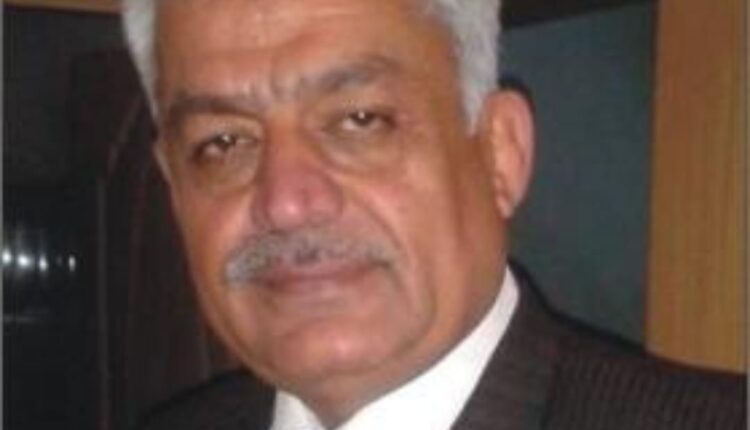By Syed Farooq Shah
Pakistan’s economy is facing an unprecedented crisis, and the Pakistan Tehreek-e-Insaf (PTI) party, led by Imran Khan, is at the helm of this chaos. The country’s economic growth has been modest, with a real GDP growth rate expected to be around 2.5% in fiscal year 2023/24. However, this growth is threatened by PTI’s protests and rallies, which have caused unrest and instability in the country.
The PTI’s actions have led to economic instability, deterring foreign investment and hindering growth. The party’s protests have resulted in destruction of public property, causing losses to the already struggling economy. Furthermore, the PTI’s refusal to engage in dialogue with the government has exacerbated the crisis. This has led to concerns about the potential for economic derailment, particularly in light of Pakistan’s ongoing efforts to recover from previous crises.
In contrast, the federal government has shown remarkable restraint and willingness to engage in dialogue with the PTI. The government’s efforts to stabilize the economy, including securing a nine-month loan package from the IMF, have been commendable. The government’s commitment to democracy and its willingness to address the concerns of all stakeholders are also noteworthy.
Pakistan faces numerous economic challenges, including a low tax-to-GDP ratio, high inflation, large trade deficit, and dependence on foreign aid. The country’s economic growth is closely tied to law and order, and any instability in neighboring countries can have a ripple effect on Pakistan’s economy.
The PTI’s protests have also sparked concerns about constitutional crises and the potential for instability in the country. The party’s demands for early elections and accountability have been met with resistance from the government, leading to a stalemate. This has resulted in economic instability, deterring foreign investment and hindering growth.
The international community has a crucial role to play in supporting Pakistan’s economic recovery. The IMF, World Bank, and other international financial institutions can provide critical support to Pakistan’s economy. However, the PTI’s actions have made it challenging for the government to implement economic reforms and attract foreign investment.
The government must take a firm stance against PTI’s agitators and ensure that the rule of law is upheld. The government should also continue to engage in dialogue with the PTI and other stakeholders to find a peaceful resolution to the crisis. Implementing economic reforms, ensuring stability and security, and promoting foreign investment are essential to addressing Pakistan’s economic challenges.
Regional implications of Pakistan’s economic instability cannot be overstated. The country’s strategic location makes it a critical player in regional trade and commerce. Instability in Pakistan can have a ripple effect on neighboring countries, including Afghanistan, Iran, and China. Enhancing regional trade and commerce is essential to promoting economic growth and stability.
In conclusion, Pakistan’s economic crisis requires a multifaceted approach. The government’s efforts are commendable, but the PTI’s continued negligence threatens to derail progress. It’s essential for all stakeholders to work together to address Pakistan’s economic challenges. Encouraging dialogue between the government and PTI, implementing economic reforms, enhancing regional trade and commerce, and seeking international support are critical steps towards promoting economic growth and stability.
The federal government’s reasonable and kind attitude towards PTI is a welcome change from the confrontational politics that have plagued Pakistan in the past. By choosing dialogue over confrontation, the government is sending a strong message that it prioritizes the well-being and stability of the nation.
However, the PTI’s actions have raised concerns about the potential for economic derailment. The party’s protests have resulted in destruction of public property, causing losses to the already struggling economy. Furthermore, the PTI’s refusal to engage in dialogue with the government has exacerbated the crisis.
To address the economic crisis, the government must prioritize economic reforms, stability, and security. The government should also continue to engage in dialogue with the PTI and other stakeholders to find a peaceful resolution to the crisis. Promoting foreign investment, enhancing regional trade and commerce, and seeking international support are essential to addressing Pakistan’s economic challenges.
In the end, Pakistan’s economic recovery requires collective efforts from all stakeholders. The government, PTI, and international community must work together to promote economic growth and stability.
References:
³ State Bank of Pakistan. (2024). 2023-2024 The State of Pakistan’s Economy.
¹ The Economist Intelligence Unit. (2024). Pakistan Economy, Politics and GDP Growth Summary.
² United States Institute of Peace. (2021). Pakistan’s Shifting Political and Economic Winds.



Comments are closed.